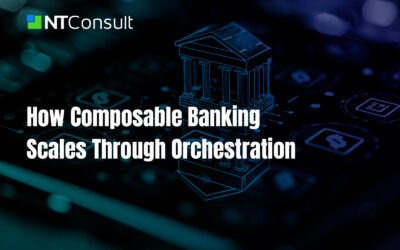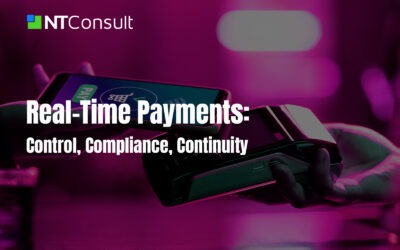Salesforce has evolved into a mission-critical ecosystem in enterprise environments, powering everything from customer relationship management (CRM) to compliance workflows and real-time business analytics. Yet, with its growing capabilities comes increased complexity, especially for organizations with legacy systems, multiple business units, and high compliance requirements.
For technical leaders overseeing enterprise architecture, digital transformation, or operational systems, a Salesforce implementation is far more than just a platform deployment. It’s a high-impact initiative that must deliver integration depth, user adoption, and operational reliability without creating new bottlenecks.
This guide helps you cut through the noise. Whether you lead technology operations in telecom, banking, or insurance, this article is built for your world: complex systems, limited tolerance for disruption, and demand for measurable ROI.
What does a Salesforce implementation partner do?
A Salesforce implementation partner does more than activate licenses or configure modules. In enterprise scenarios, they are responsible for:
- Solution architecture: aligning the Salesforce setup with business goals and technical constraints.
- Legacy and third-party integration: connecting Salesforce to existing systems, often requiring middleware, secure APIs, and customized data pipelines.
- Data migration: safely transferring critical data with accuracy and compliance in mind.
- User enablement: ensuring adoption through training and intuitive design.
- Post-launch support: Offering stability, optimization, and continuous delivery.
Many lesser partners stop at basic setup or lack the structure to provide strategic support post-deployment. The right implementation partner understands not just Salesforce, but your enterprise architecture.
How to evaluate a Salesforce implementation partner
Choosing the right Salesforce partner isn’t just about finding a certified consultant. You must align technical depth with your business reality. For organizations managing complex system landscapes, legacy infrastructure, and multi-stakeholder environments, a partner’s true value lies in how they plan, execute, and evolve their delivery.
Below are four core dimensions to evaluate, not with checklists, but with outcomes in mind.
Technical architecture and integration capabilities
A capable partner must demonstrate more than knowledge of Salesforce components. They must understand how to engineer your solution in the context of existing enterprise systems. This includes:
- designing robust integrations with middleware,
- ensuring secure and scalable data flows, and
- enabling real-time or bi-directional synchronization with legacy environments.
Their approach to data governance, from source-of-truth consistency to permission models, will directly impact the success of your implementation.
Delivery methodology and agile capabilities
Agility without discipline creates chaos. That’s why it’s essential to assess how a partner structures their delivery.
- Are their sprints goal-driven and measurable?
- How do they manage UAT feedback cycles and regression testing in parallel?
In sectors like telecom or finance, speed must coexist with traceability and compliance, so the methodology should reflect that. A partner with embedded QA automation and strong sprint retrospectives will reduce risk while maintaining momentum.
Domain-specific experience
Experience within your industry significantly shortens ramp-up time and reduces rework. A partner familiar with telecom OSS/BSS or regulatory frameworks in finance, for example, can proactively architect around known pitfalls.
They’ll also be more effective in aligning Salesforce features with your industry’s operational models, leading to better adoption and cleaner audits. Sector fluency translates to real-world delivery efficiency.
Team composition and stability
Finally, it’s not just who you hire, it’s who stays. A technically strong team means little if key personnel rotate off the project midstream. Ask about:
- the average tenure of their consultants,
- team structure continuity, and
- how they ensure knowledge transfer.
For leaders managing multiple workstreams and KPIs, delivery stability is a core requirement for success.
Evaluation Quick Guide
| Core Dimension of Your Salesforce Implementation Partner | Questions to Ask | What You’re Looking For and Why It Matters |
| Technical architecture and integration capabilities | Can they manage bi-directional sync with legacy systems How do they ensure data governance across multiple domains? Do they build for future scalability, not just today’s needs? | Look for architecture fluency, middleware handling, and long-term viability. These determine your system’s resilience and scalability. |
| Delivery methodology and agile capabilities | How do they handle sprint planning and backlog refinement? What’s their QA and regression testing structure? Can they adapt to evolving scope without compromising stability? | Evaluate maturity in agile delivery, especially in regulated or mission-critical environments where structure equals predictability. |
| Domain-specific experience | Have they worked with telecom OSS/BSS stacks? Do they understand financial compliance workflows? | Sector expertise reduces delays and rework by aligning faster with industry-specific needs and constraints. |
| Team composition and stability | Ask about staff continuity and average team tenure. Understand who will actually work on your project, not just who appears in the pitch. | Stability ensures knowledge retention, smoother delivery, and fewer disruptions, critical for complex enterprise rollouts. |
Evaluate candidates not by pricing or slide decks, but by their technical fit, sector knowledge, team stability, and performance visibility.
Red flags to avoid in a Salesforce partner
Not all Salesforce partners are created equal, and the cost of choosing the wrong one can ripple through your operations for years. From hidden technical debt to missed integration deadlines, the warning signs often emerge too late.
To prevent expensive missteps, it’s critical to recognize the red flags early in the selection process. The most damaging issues stem not from a lack of certification, but from gaps in accountability, architectural foresight, and post-launch maturity.
Watch for:
- Vague scoping with no ownership of outcomes
- Lack of post-launch support
- Inability to integrate with legacy or non-Salesforce systems
- Overemphasis on low pricing without proven delivery history
- Too much reliance on offshore teams with communication gaps
Nearshore Salesforce delivery: a secondary benefit, not a priority
Nearshore delivery offers benefits like time-zone alignment, cultural fit, and more fluid communication, especially relevant in telecom or high-paced infrastructure projects. But it’s not a substitute for expertise.
As technical leaders often say: “We value nearshore, but not at the cost of deep understanding or delivery consistency.”
Choose partners who are technically proven first, and nearshore second.
What sets a high-performing Salesforce partner apart
Not every certified Salesforce partner is equipped to handle the demands of large, complex enterprises. What separates a transactional vendor from a truly strategic partner is the ability to deliver sustained value, not just during implementation, but throughout the lifecycle of the platform.
High-performing partners distinguish themselves through technical precision, proactive optimization, and a relentless focus on measurable outcomes.
Below, we explore three critical attributes that define this elite tier.
Measurable ROI and performance tracking
The best partners provide visibility into:
- Time-to-value;
- User adoption rates;
- Support SLAs and uptime metrics;
- Business process efficiency before vs. after implementation.
Post-implementation optimization
Delivery doesn’t end at go-live. Look for partners who provide:
- Ongoing feature iteration;
- Monitoring and performance reviews;
- Roadmapping for business alignment.
Referenceable enterprise success stories
Partners who’ve worked on real-world, complex projects can demonstrate:
- Reduced operational costs;
- Faster order-to-cash cycles;
- Enhanced reporting for regulatory compliance.
NTConsult’s Salesforce expertise spans sectors where stakes are high, including banking, insurance, and telecom.
Where to find and compare Salesforce partners
Start with trusted sources:
- Salesforce AppExchange – Consulting Listing;
- Request client testimonials and look for proven case studies;
- Check for certifications, but validate them with delivery history.
The choice of a Salesforce implementation partner often starts with tools and timelines, but what truly defines success is whether your partner can scale with the pace and pressure of your business. It’s not about who promises the fastest launch or the lowest bid. It’s about who stays when integration challenges emerge, who understands the nuance of your infrastructure, and who makes architecture decisions that still hold true 18 months later.
You’re not buying hours, you’re investing in system resilience, cross-functional continuity, and the ability to pivot with clarity when business needs evolve. A strong partner brings calm to complexity, turning transformation into traction. That’s how NTConsult approaches Salesforce delivery: long-view, technically grounded, and relentlessly tied to business impact. We deliver Salesforce solutions designed for complex environments, with the people, processes, and tools to support your goals long after go-live.




